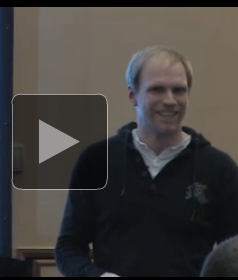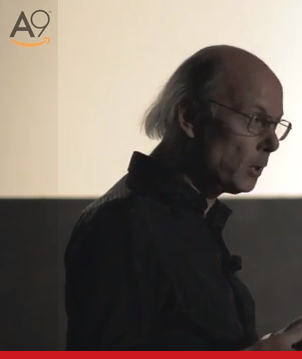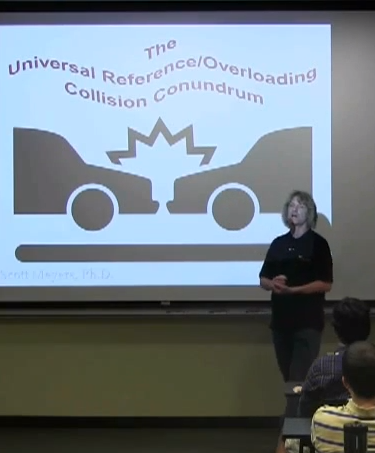New Adventures in C++ with Cinder and More -- Ale Contenti
 The Cinder C++ library for graphics got a shout-out from Herb Sutter at GoingNative'13, and now we get a full hour-long talk about Cinder from Visual Studio's own Ale Contenti.
The Cinder C++ library for graphics got a shout-out from Herb Sutter at GoingNative'13, and now we get a full hour-long talk about Cinder from Visual Studio's own Ale Contenti.
New Adventures in C++ with Cinder and More
Play and be productive with modern C++, graphics, on-the-fly projects and more! Starting from the latest Going Native 2013 talks as an inspiration, we will explore how easy is to mold ideas into graphics apps with C++ and Cinder, and how simple tools and techniques can help us be more productive in Visual Studio!

 Speaking of
Speaking of 
 The
The  Prof. Stroustrup spoke at A9 last week on "The Future is Here: C++11." The video is now available on YouTube:
Prof. Stroustrup spoke at A9 last week on "The Future is Here: C++11." The video is now available on YouTube:
 Bjarne Stroustrup spoke at this summer's ACM International Collegiate Programming Contest World Finals held in St. Petersburg, Russia. While there, he also gave this 8-minute interview in the context of balancing efficient code with the out-of-the-box problem solving required by ICPC problem challenges.
Bjarne Stroustrup spoke at this summer's ACM International Collegiate Programming Contest World Finals held in St. Petersburg, Russia. While there, he also gave this 8-minute interview in the context of balancing efficient code with the out-of-the-box problem solving required by ICPC problem challenges. From this month's KDE Akademy conference:
From this month's KDE Akademy conference: [Blog suggestion by NoSenseEtAl. Text below added by editor.]
[Blog suggestion by NoSenseEtAl. Text below added by editor.]